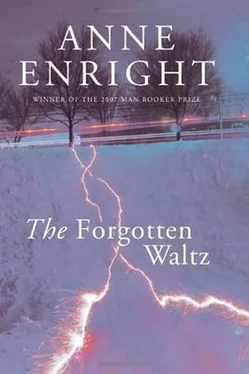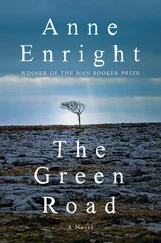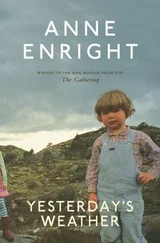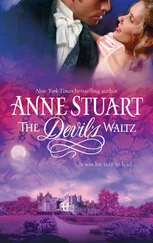The title of the week was ‘Beyond the EU’. I was there to talk ‘International Internet Strategy’ – delighted to get the invite, which was a step up for me. The hotel was a confection in cream and red velvet, with gilt everywhere and stains on the carpets that might have been a hundred years old. And there on the first morning, under the heading ‘The Culture of Money’ was the name ‘Seán Vallely’.
‘You made it,’ he said. He looked better than I remembered. Maybe it was the fact that he was dressed.
‘I wondered who it was,’ I said.
‘Ah, wheels within wheels,’ he said.
We shook hands.
His palm felt old, I thought, but most palms do.
I checked him out giving a seminar that first morning: I glanced in through the open door and saw him eating the room. His open jacket flapped behind him, as he turned to one corner and then the other. He worked the air in front of his chest; he cupped the thought, and held it out, and let it go.
‘Why,’ he said, ‘do you dislike rich people?’
It was quite a spiel.
‘You. What’s your name? Billy. OK, Billy. Do you like rich people?’
‘I’m not bothered.’
‘You take it personally, don’t you? The house, the car, the holidays in the sun. You take it personally, because you’re Irish. If you were American, you’d let them have it. Because, you know, these people are not connected to you. They bought their nice house and your name didn’t even come up. They went to the Bahamas and they didn’t even forget to invite you.’
There were two speakers each morning, and people were split into groups for workshops during the afternoons. I thought Seán was sleeping with the ‘Global Tax’ woman, or that he had slept with her. But, I learned later, they just didn’t like each other, or so he said.
Meanwhile there were the chocolate tastings and shopping opportunities and much rubbish to talk. The wilder ones, myself included, formed a kind of gang, with large amounts of drinking to get through. There were two Northern Irish guys ‘from either side of the divide’ whose catchphrase became, ‘just so long as nobody gets shot’. There was a really nice gay guy who played torch songs at the piano in the bar and the Global Tax woman, who drove me up the wall by stopping the conversation, many times, in order to make her point yet more clear. By Wednesday night it was a drinking competition, and I had her knocked out by the fourth round. On Thursday I ended up in one of the Northerners’ rooms, polishing off the mini-bar with the other Northern guy and Seán; the queen of international tax returns passed out on the second bed. On the last night – Friday – Seán met me on my way back from the ladies, and he turned to gather me up, saying, ‘Come here. I have something to show you.’ At least I think that is what he said. I may not remember the words exactly, but I remember his hand on the small of my back, and I remember knowing what we were about to do. It seemed that choice had nothing to do with it, or that I had chosen a long time ago. Not him, necessarily, but this; waiting for the lift in sudden silence with a man who did not even bother to court me. Or had that happened already? Maybe he would court me later. Things, clearly, did not happen in a particular order anymore: first this, and then that. First a kiss, and then bed. Maybe it was the drink, but my sense of time was undone, as idly as a set of shoelaces, that you do not notice until you look down.
In the lift we made small-talk. Don’t ask me what about.
A part of me said that there would be other people in his room, like the previous night’s fun – that we were still a happy bunch of people who were trying to move beyond the EU – another part surely hoped that there wouldn’t be. But there is little point in agonising over something so simple. We went upstairs to have sex. And it seemed like a great idea at the time. I was, besides, so drunk, I only remember it in patches.
We had an amazing session outside the room, I do remember that; as I resisted going in the door and he turned back to persuade me. My memory skips the beginning of it, like a needle in an old record, so I have lost the moment of decision, the leaning in. But I remember how he slayed me with kisses, how, when I struggled to open my eyes, I was surprised to find the hotel corridor still there; the dizzy carpet, the receding line of identical doors, and the wallpaper, in vertical stripes of scarlet flock. As I continued to leave and he continued to keep me, the kiss was a sweet argument and pursuit, so tranced and articulate, his left hand on my arm, the other holding his plastic door key, not yet slipped home.
It was the luxury of the kiss that held me, the pure pointless, greedy delight. Even when the lock whirred and the door clicked open, we carried on, and it was only the sound of people coming out of the lift that sent us scurrying inside, laughing in the darkness.
After the kiss – the five-minute, ten-minute, two-hour kiss – the actual sex was a bit too actual, if you know what I mean. There is another blank when I try to recall how we got from the door to the bed, after which, much enthusiastic bouncing and writhing, despite the fact that I couldn’t really feel much, I don’t think, and Seán (who is now the love of my life – my goodness, how it betrays him to say this), took about half an hour to come.
At the time, I thought it was the drink that slowed him down. But Seán only ever pretends to drink. Now I know him better; that inward look as he tries to catch his pleasure, the thing that puts him off his stroke, I realise, is age. Or the fear of age.
As if I cared about his age.
Or perhaps this is not how it was in Montreux. I might be imposing the lover I know now on the memory of the man I slept with then. He might have been, that first time, thrilling and keen, pitch perfect; the impulse inseparable from the action. Maybe that is what first times are for.
All I know is that one night, on the shores of Lake Geneva, in a small room among other small rooms, in the middle of Seán’s long effort, I turned my head to see his keys and loose change on the bedside locker; beyond them the open door of the bathroom where the fan still droned, and I remembered who I was.
I don’t know if Seán was surprised how quickly I left afterwards, but he was practically asleep and did not detain me. The last thing I remember was the door at my back and the long corridor stretching out on either side of me. I think I got lost. I have some idea that I tried – quite hard – to get into my room, but it was on the wrong floor: the numbers had confused me. I lurched through the carpeted corridors and got into lifts and out again, and I met no one, or maybe just one couple, who said nothing but stood in by the wall as I passed. But even this is not clear. Some shutter came down, and it did not rise until I woke the next day, safe in my own bed, half-undressed, with all the lights ablaze.
It maddened me. I did not feel guilty, exactly, but I did feel a little mad, I think. I couldn’t face the breakfast room, for a start. I put my sunglasses on and headed to a local patisserie, then I took my hangover to the railway station, and I got the first train out of there, a neat, old-fashioned little thing, with bench seats, which went a surprising distance up into the mountains, through tunnels and hidden passes, until it emerged into high meadow lands strewn with Alpine flowers and grazed by chocolate-bar cows with bells around their beautiful, pendulous, mauve necks. The few scattered houses had heart-shapes cut out of their wooden balconies, and white quilts thrown over the rails to air in the sun. And it was all so wonderful and silly, I decided to get out at Gstaad, which turned out to be a village of a few streets, with twee little shops, all with names like Rolex or Cartier. There was a Gucci shop and a Benetton shop and a delicatessen full of astonishing cheese. I walked the entire village, and there wasn’t a single place where you could buy cornflakes, or muesli, or even toilet paper and I wondered, did the rich people get these things flown in? Perhaps they did not need them: they had moved beyond.
Читать дальше












